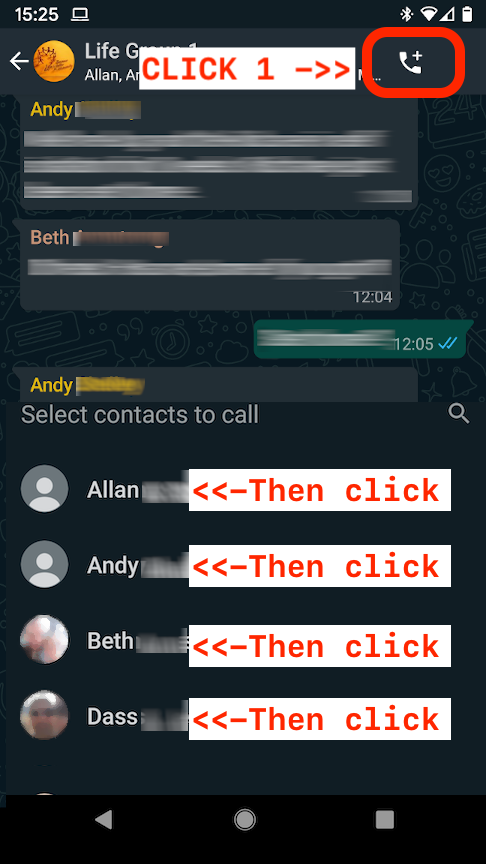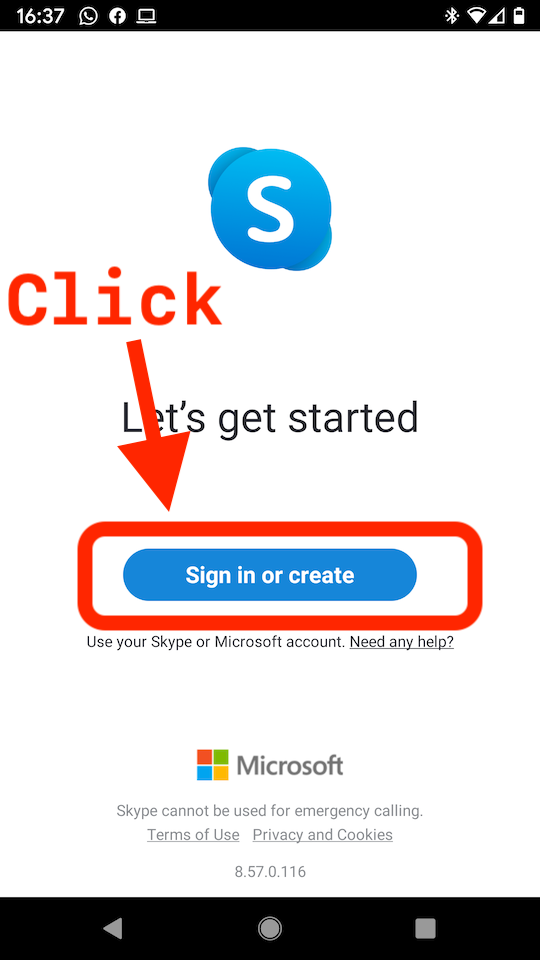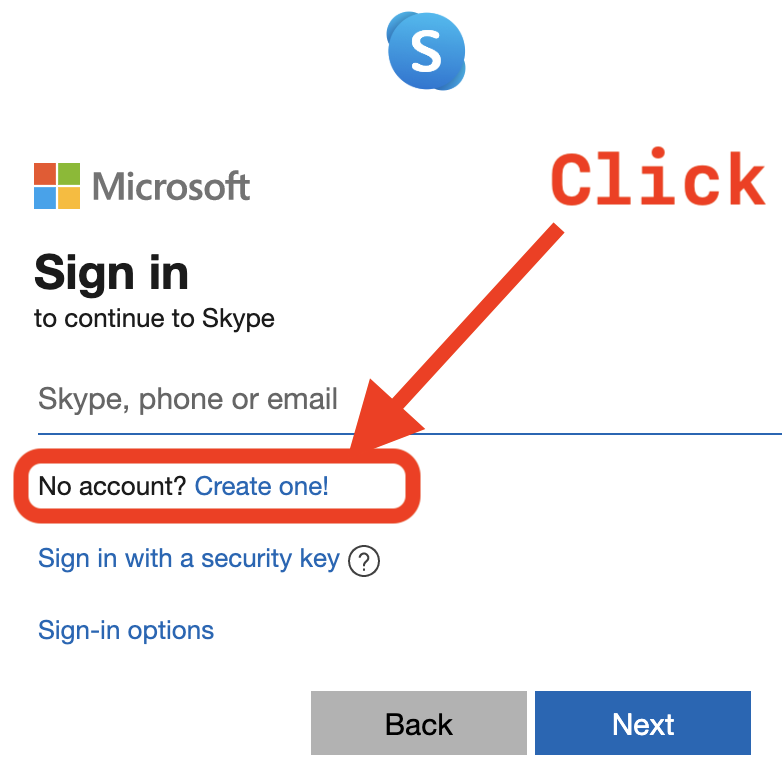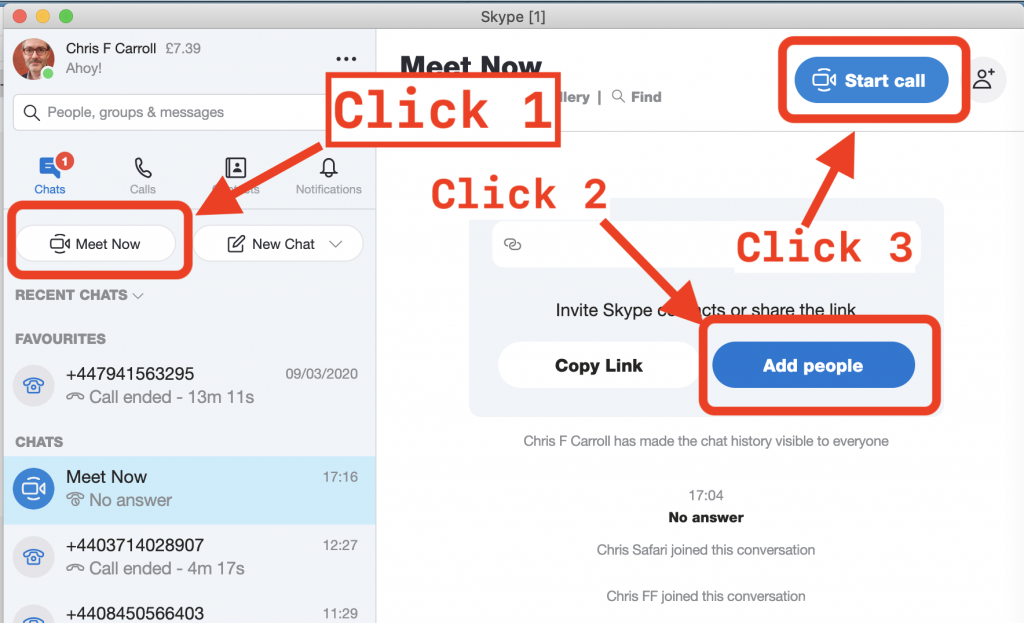Here are the two simplest options I have.
If you already use Whatsapp, Whatsapp video call is easily the simplest, but for maximum 4 people.
For more than four people, or for people using computers not phones, Skype 'Meet Now' is the simplest.
WHAT YOU NEED:
Each household needs Any ONE of these:
- Either: A smartphone with camera and internet
- Or: A tablet or ipad with camera and internet
- Or: A computer with webcam and microphone and internet
Desirable: One or more people in your group who know what Apps, Webcams and Online Accounts are.
HOW TO
Option 1: WHATSAPP for Maximum 4 People
- Create a New Group in Whatsapp if you do not already have a group for the people who want to meet.
- In the group, tap the "phone"+ icon in the top right corner
- Add people to the call

DONE!
Option 2: SKYPE for Maximum 50 Households
Option Skype, Step 1: Each person must install Skype and create a Skype account
- Install Skype: https://www.skype.com/en/get-skype/
- Create an Account
- Open Skype and go through the process to create an account
- Open Skype and go through the process to create an account

... and then ...

... and so on.
Notes:
- Using your mobile phone number for your account may be simplest.
- You do not have to give your real date of birth to Skype.
I often use 1/1/1999 for apps which do not need to know my real date of birth.
Option Skype, Step 2: Meeting leader gets everyone's Skype account
The meeting leader and/or others need to know everyone's skype account, and add them as a contact in their own Skype.
Option Skype, Step 3: Meet!
- Set a meeting time. Everyone open Skype! Make sure you are logged in.
- The meeting leader uses Skype to start the meeting and invite each person.
- Open Skype and click the 'Meet Now' button
- Add people to the meeting
- Start the call

DONE!
Q: Can't I send them a link instead?
A: Yes if you think that will be easier. Use the Copy Link button instead of the Add people button. Then paste the link into a text message or an email or a whatsapp message or however you can best reach people.
Recommendation for your first online get together
Expect your first “visit” will be entirely taken up with playing with the technology, getting it to work, getting everyone's microphone to Can You Hear Me and I can't see you …
If this is for a church or other regular small group, meeting online for the first time, then perhaps plan for the first one to just be a chat, a 'how is everyone doing' and a time for prayer.
